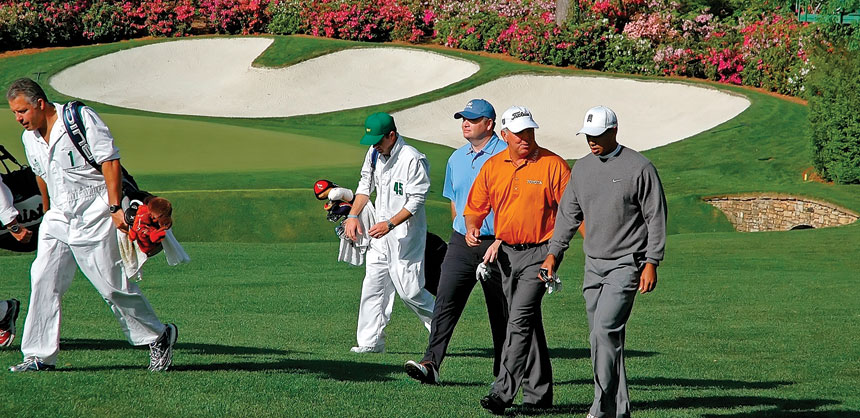Sports Incentives Bouncing BackJuly 1, 2013
How Popular Bucket-List Events Reward and Motivate By Derek ReveronSports Incentives Bouncing Back
How Popular Bucket-List Events Reward and Motivate
Tiger Woods at a past Masters. Credit: Danny E. Hooks/www.Shutterstock.com
Corporate sports incentives are bouncing back, rebounding and coming on strong say the experts. The need to reward top employees and customers along with a growing variety of budget-friendly sports incentive packages are fueling a resurgence.
What’s more, sports incentive groups are becoming smaller and more individualized as well, according to Bruce Rickert, president of Jamison, PA-based Peak Performance Travel Incentives. “Companies are sending fewer people and sending them to their preferred sport versus sending a whole group to the same sport. Not everyone is doing a big president’s club-type incentive anymore,” he says. Rickert wisely encourages companies to set the budget first, and then his firm creates trips to fit the prescribed amount.
Although the overall size of sports incentive groups is diminishing, the number of companies participating is edging higher. Sports incentive providers say the increase comes as financial and insurance companies remain mindful of controlling costs and flying below the public radar due to the residual effect of the Troubled Asset Relief Program (TARP) guidelines on incentives, meetings and events.










